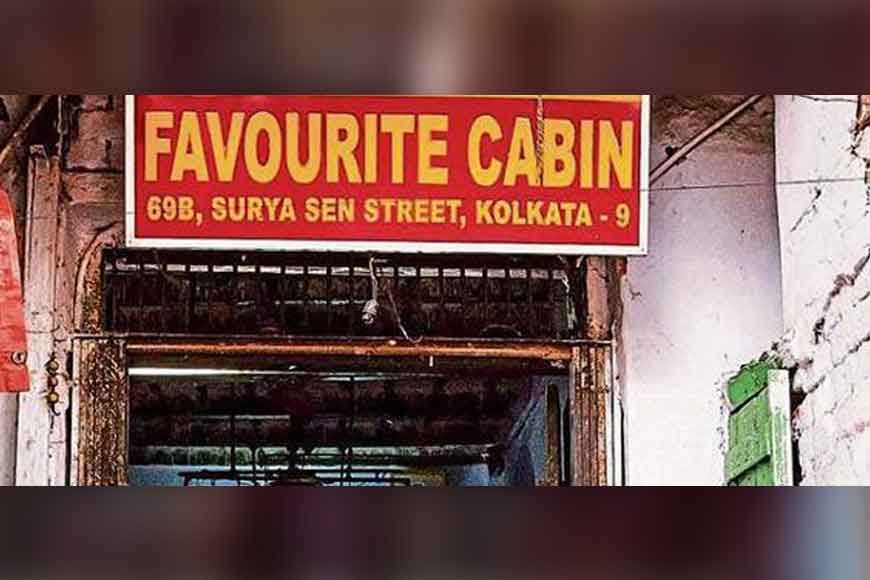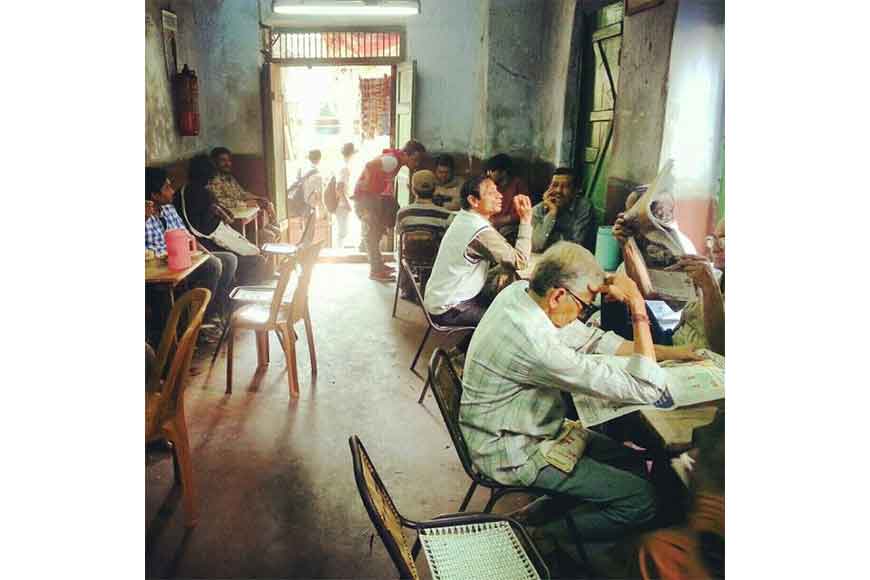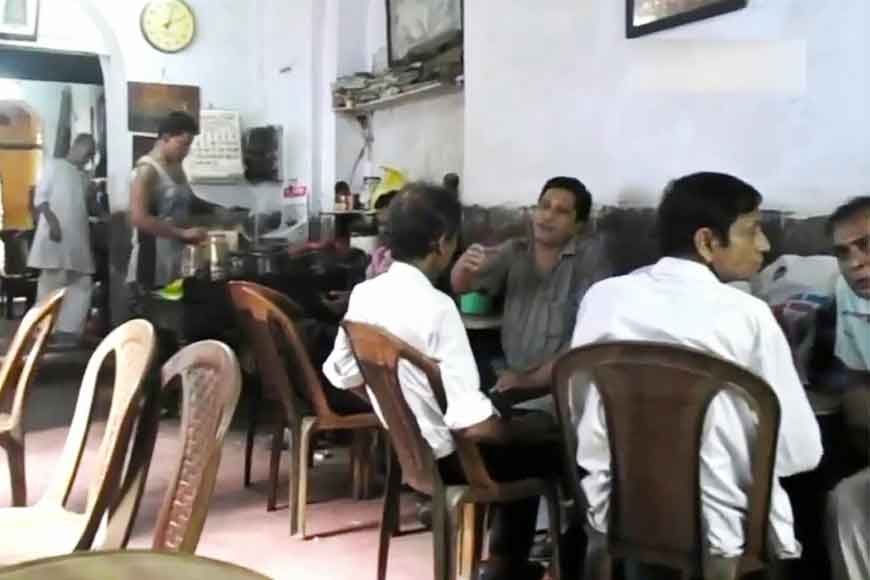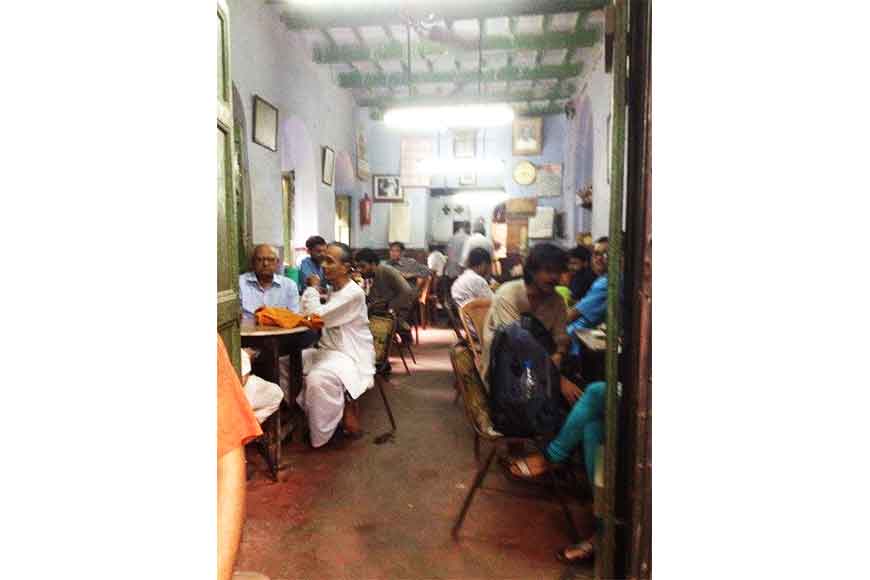Century old Kolkata Café where freedom fighters met in disguise!

In the middle of the glitz and glamour of Kolkata, lies a quaint old-world café at 69B Surya Sen Street, where time stands still. Favourite Cabin might look shabby to many, but for those who know how to enjoy the charm of an old city like Kolkata, this is probably the place to raise a whiff of nostalgia. Founded in 1918, this cabin has been quenching the thirst of many for more than 100 years.
Located in the historic neighbourhood of Presidency College, Calcutta University and Coffee House, the cabin is soaked deep in the fragrance of the bygone times. A primitive stair case, minimal illumination, cold and dark rooms, marble topped tables and of course, rickety chairs that still strive to exist in the contemporary times. The dusty fans still keep on running like an old poet who had been keeping a watch on the cabin since the yesteryears when the city was painted red with revolution. It is around century old, first started by Nutan Chandra Barua and his elder brother, Gaur Chandra Barua who moved from Chittagong to Kolkata. A lot around us has changed since then. But one of the few places in the city that has not let the change alter its essence is Favourite Cabin.

Freedom fighters Master Da Surya Sen, Netaji Subhash Chandra Bose were frequent visitors to this place. The founding brothers were adherents of the Swadeshi Movement and thus this place became the confluence point of freedom fighters. Who knows Netaji might have chalked out strategies to free India sitting right here? Kavi Nazrul Islam often sat quietly beside a window. For Subhash Bose, Table No 4 was a permanent address.
In the Swadeshi era, Favourite Cabin was divided into three areas —an outer sitting area, an inner chamber where Swadeshi meetings were held and a kitchen. As soon as there would be any news of raid, a signal would be given to the inner chamber from the cash counter so that the Swadeshis could flee through the backdoor. Favourite Cabin also witnessed the unrest of the Naxalite movement of the 1970s.

Be it Soumitra Chatterjee, Shibram Chakraborty and other eminent personalities, they always descended here. It was a perfect place for intellectual rendezvous, stimulating conversations, political debates. The cabin was much more than just an ordinary eatery. Achintya Kumar Sengupta in his 1937 memoir wrote: “Sitting in a circle over the marble-top tables in the cabin, the adda used to continue well after the tea sessions were over; owner Nutanbabu always welcomed our group… the gathering gave rise to many a debate, numerous promises and future strategies. Kallol would have been incomplete without Favourite Cabin…” During the seventies, Sunil Gangopadhyay was also a frequent visitor. When the price of tea was increased from 25 paise to 30 paise, Gangopadhyay wrote in ‘Jugantar’ expressing his discontentment over the whole issue.
Even today the décor and the menu remain unchanged except the inclusion of some plastic chairs. The staple menu still includes tea, lemon tea, slice cake and pan cake. The Baruas were Buddhists and never served eggs. The tradition remains the same. There still resides a gigantic coal furnace which brings a specific taste to the toasts which the guests still swear by. Nutan Chandra Barua ran the shop for five decades till 1970 handed over the cabin to his three sons- Badal, Mridul and Dilip. Even the descendants are old now and have been meticulously striving to hold on to the heritage of the place by keeping every element of the cabin unaltered. Perhaps, this keeps old timers coming back.

Somraj Banerjee has been a frequent visitor to this place since his Calcutta University days and still keeps coming back. In his words, “Me and my friends started visiting Favourite Cabin in our University days and soon the place became a part of our existence. The cabin, for over a hundred years, holds an old-Calcutta charm with minimum decor, marble topped table and the fragrance of history across the two-roomed place. It has been a witness of so many literary, social and political









